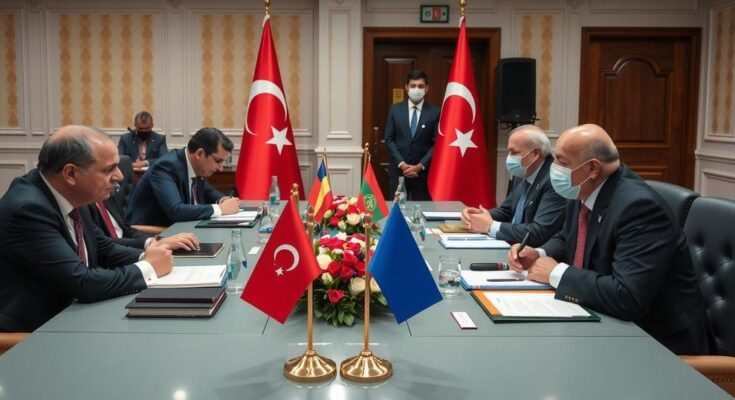International partners have praised the Ankara Declaration, affirming Ethiopia and Somalia’s commitment to sovereignty and cooperation. Key stakeholders, including the African Union and UN, encourage swift implementation of the agreement focused on Ethiopia’s sea access and mutual respect, aiming to resolve past conflicts and enhance regional stability.
International bodies have commended the Ankara Declaration, signed on December 11, 2024, by Ethiopian Prime Minister Abiy Ahmed and Somali President Hassan Sheikh Mohamud. The agreement, which focuses on issues of sovereignty, unity, and territorial integrity, has received significant endorsements from the African Union, the United States, the United Kingdom, the European Union, and the United Nations. Leaders emphasized the need for immediate execution of the measures stipulated in the declaration to enhance cooperation and stability in the Horn of Africa.
The Ankara Declaration, facilitated by Turkish President Recep Tayyip Erdoğan, lays the groundwork for technical negotiations regarding Ethiopia’s access to the sea, anticipated to commence in February 2025 and conclude within four months. The agreement recognized the importance of mutual respect and urged both nations to work collaboratively to resolve outstanding differences for their mutual economic gain. Notably, the declaration highlights the sacrifices made by Ethiopian soldiers in Somalia and expresses gratitude to Turkey for its crucial mediating role.
The recent agreement emerges amidst tensions following Ethiopia’s plans to establish a port in Somaliland, a region claimed by Somalia. Such developments were perceived as a challenge to Somalia’s territorial sovereignty, intensifying the need for a diplomatic solution. Moving forward, international stakeholders have articulated optimism regarding the prospect of enhanced diplomatic relations and regional stability stemming from the Ankara Declaration.
The Ankara Declaration represents a crucial diplomatic initiative between Ethiopia and Somalia, emphasizing sovereignty, unity, and territorial integrity as key tenets of their bilateral relations. This agreement arises from a contentious backdrop, particularly following Ethiopia’s port development ambitions in Somaliland, which have been viewed as violations of Somalia’s sovereignty. The commitment from both leaders to resolve issues amicably highlights a broader trend toward fostering cooperation and maintaining stability in the Horn of Africa, a region often beset by conflict and rivalry.
The Ankara Declaration signifies a promising step toward fostering peaceful relations between Ethiopia and Somalia, with broad international support advocating for swift implementation. By recognizing each nation’s sovereignty and pledging to collaboratively navigate potential disputes, the involved parties underscore the importance of maintaining regional stability. The focus on technical negotiations and commercial arrangements paves the way for mutual economic benefits, reflecting a commitment to constructive dialogue and cooperation.
Original Source: addisstandard.com




